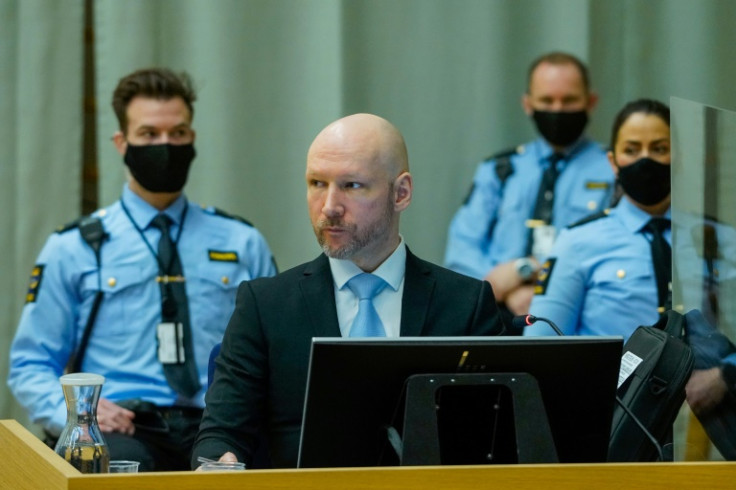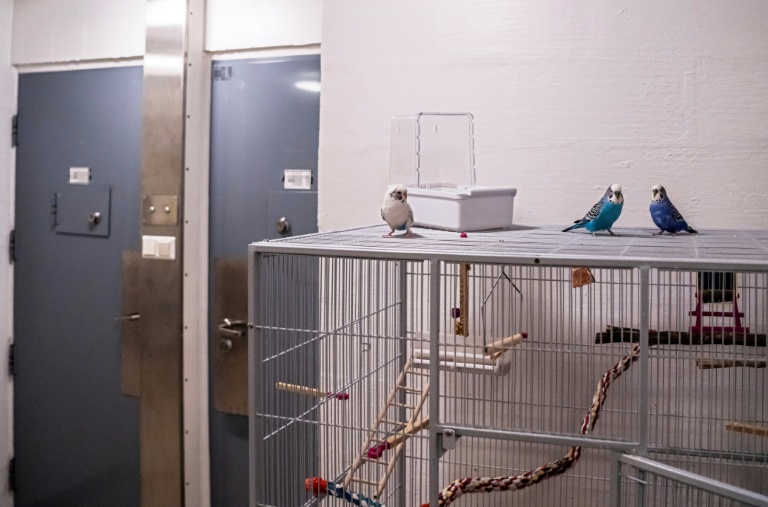Anders Behring Breivik, the right-wing extremist who killed 77 people in 2011 and is now “suicidal” according to his lawyer, appears in court Monday in his lawsuit against Norway over his prison conditions.
Breivik, now 44, has been held apart from other inmates in a high-security facility for over 11 years.
He argues that his extended isolation is a violation of Article 3 of the European Convention on Human Rights, which prohibits “inhumane” and “degrading” treatment.
On July 22, 2011, Breivik set off a van bomb near government offices in Oslo, killing eight people, before gunning down 69 others, mostly teens, at a Labour Party youth wing summer camp on the island of Utoya.
He was sentenced in 2012 to 21 years in prison, which can be extended as long as he is considered a threat, Norway’s harshest sentence at the time.
Since then, he has been held “in isolation, and the more time that passes the greater the violation of the Convention”, his lawyer Oystein Storrvik told AFP in October.
In the lawsuit documents, Storrvik said that the “long period of isolation and absence of meaningful interaction has caused Breivik (psychological) suffering, including the fact that he is now suicidal”.
“He is dependent on the anti-depressant Prozac to be able to get through his days in prison,” Storrvik said.
According to him, Breivik’s only personal contact is with two other inmates whom he sees for one hour every two weeks under strict surveillance, as well as his interaction with prison staff.
Citing another article of the Convention on Human Rights that guarantees the right to correspondence, Breivik has also asked for an easing of the restrictions on his letter-writing with people outside prison.
Breivik has already sued the Norwegian state on both grounds, with an Oslo district court stunning the world in 2016 when it ruled his isolation was a breach of his rights.
On appeal, Norway’s higher courts found in the state’s favour, and the European Court of Human Rights in 2018 dismissed his case as “inadmissible”.
The five-day trial starting Monday will be held in the gymnasium of the Ringerike prison, for security reasons.
The prison is located on the shores of the lake that surrounds the island of Utoya.
Breivik has access to several rooms on two floors that include a kitchen, a TV room with a game console, and an exercise room, according to Norwegian news agency NTB.
Prison officials have also complied with his request for a pet to keep him company by providing him with three budgies, NTB said.
Norway prides itself on a humane prison system aimed more at rehabilitation than punishment.
The state has said that Breivik’s isolation is relative and justified due to the danger he presents, and that his prison conditions are needed to protect society, other inmates and wardens, as well as himself given risks from other inmates.
Breivik enjoys “a wide range of activities” such as cooking, games, walks and basketball, and “there is no indication that he is suffering from physical or mental problems due to his prison conditions”, the state’s lawyer Andreas Hjetland said.
“Breivik has so far shown little interest in rehabilitation work,” he added.
“It is therefore difficult to imagine which significant improvements in his prison conditions are possible and justified in the short term.”
Breivik has in the past used his public appearances as platforms to air his political ideology and provocations, including Hitler salutes and tirades, which have been painful for survivors and relatives of the victims.
This is one of the reasons the judge has decided to bar his testimony, due on Tuesday, from being broadcast in the media.
“There would be a real danger that Breivik’s testimony would divert attention away from the question at hand and put the focus on his ideological message,” judge Birgitte Kolrud said.
AFP

AFP







